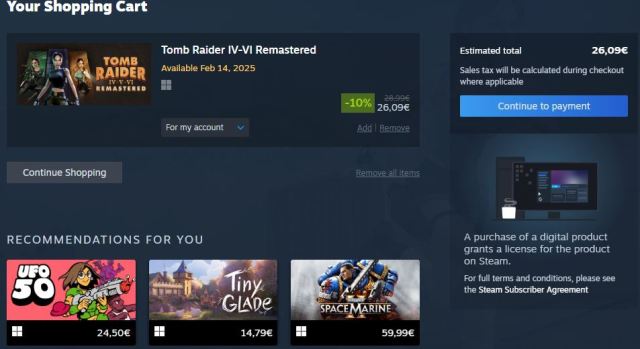Valve is finally putting all possible doubt regarding Steam game ownership to rest by explicitly stating its users are getting a license to play the games they pay for on Steam.
Once you add a game to your Steam shopping cart, you will now be able to read the message, “A purchase of a digital product grants a license for the product on Steam”. Below the message, users will find a link to access the entire subscriber agreement. Long story short: we don’t really own the games we pay for on the platform — regardless of them tending to cost as much as physical copies would.

Actual ownership of Steam games has always been a controversial issue. Those in the know have always expressed distaste at not really acquiring the games they pay for. The others have spent who knows how many hard-earned dollars blissfully unaware they’re merely acquiring access to Steam’s property.
What does not really “owning games on Steam” mean?
Ultimately, it means Valve — in an extreme case, I’d hope — can bar your access to any game (even you have it installed) should the company find a justification deemed reasonable enough by the company itself.
While the exact reason for Steam’s newfound openness isn’t known, it’s likely coming about as a premeditated response to California’s upcoming 2025 law regarding transparency of rights ownership.
GOG naturally used Steam’s updated transparency notice to fire back. Steam’s rival storefront quickly tweeted that the digital products you buy on GOG will provide you offline installers. GOG then made a very strong and practical point by stating that not even a zombie outbreak that would cut off your Internet service could keep you away from your GOG games.
It’s great that you get to keep GOG’s games so long as you have a functioning PC, and pretty ironic that Steam might force you to fight off against a horde of IRL zombies should you really want to re-experience Left 4 Dead 2. Still, it’s important to remind you that even GOG’s storefront is also just selling you licenses. The main difference here is that once you get the game, GOG cannot ever take it from you, whereas that’s always a possibility with Steam.


